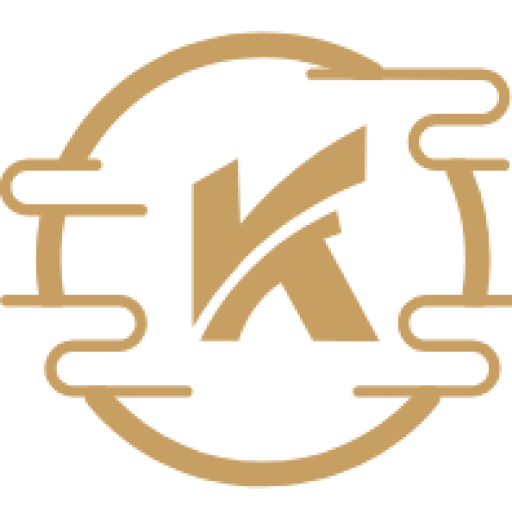Navigating a hectic work schedule can make it challenging to maintain a healthy lifestyle, especially when it comes to eating well. Between early meetings, late deadlines, and constant responsibilities, it often seems easier to grab a quick snack or rely on takeout rather than put thought into a nutritious meal. However, developing healthy eating habits, even amidst a busy professional life, is not just possible—it’s essential for maintaining energy, focus, and long-term well-being. By taking the right steps and making small but effective changes, busy professionals can maintain a balanced diet without sacrificing time or convenience.
Plan Ahead to Stay Ahead
One of the biggest challenges for busy professionals is finding the time to make healthy food choices throughout the week. The key to overcoming this challenge is planning ahead. Meal planning may sound time-consuming, but it can save hours of stress and unhealthy decision-making in the long run. By setting aside time over the weekend or at the start of the week, you can map out your meals and snacks to ensure you always have something nutritious on hand.
Begin by creating a simple meal plan for the week. This could mean planning lunches and dinners with a mix of proteins, vegetables, and whole grains. If you know your week will be particularly busy, consider batch-cooking a few key dishes on Sunday that can be eaten throughout the week. Dishes like soups, stews, grilled chicken, and roasted vegetables keep well in the refrigerator and are easy to portion out for multiple meals. Having a few pre-made options reduces the temptation to reach for takeout or unhealthy snacks.
The Power of Meal Prep
Meal prep goes hand-in-hand with planning ahead, allowing you to make smart choices even when you’re short on time. Prepping your meals doesn’t have to be complicated. You can start by chopping vegetables, cooking grains like rice or quinoa, and portioning proteins so that they’re ready to use. Dividing food into individual servings makes it easy to grab a healthy meal or snack on the go.
Breakfast is often the first meal to be neglected in the rush of a busy morning. Consider prepping breakfasts like overnight oats, smoothie packs, or egg muffins that can be prepared in advance and are ready to eat when you need them. With everything portioned out, you’ll be less tempted to hit the drive-through or skip breakfast altogether—both of which can negatively impact your energy levels throughout the day.
Make Smart Grocery Choices
Healthy eating starts with what you bring into your home. Stocking your pantry and refrigerator with nutritious options will make it easier to make healthy choices during busy times. Make a list before you head to the grocery store, and focus on whole, minimally processed foods. Fill your cart with plenty of fruits and vegetables, lean proteins like chicken, fish, and legumes, as well as healthy fats like avocados, nuts, and seeds.
Avoid shopping on an empty stomach, as it can lead to impulse buying of unhealthy, processed snacks that you’re likely to reach for when stressed or tired. Instead, have a small snack beforehand, and stick to your list. With your kitchen stocked with wholesome ingredients, you’re more likely to put together healthy meals rather than reaching for something quick and unhealthy.
Build a Balanced Plate
Healthy eating doesn’t have to be complicated. One effective way to ensure you’re getting the nutrients you need is by building a balanced plate at each meal. Aim to fill half of your plate with vegetables and fruits, a quarter with lean protein, and a quarter with whole grains or other healthy carbohydrates.
Vegetables provide essential vitamins, minerals, and fiber, while proteins help maintain muscle mass and keep you feeling full. Whole grains like brown rice, quinoa, or whole-wheat bread provide sustained energy and keep blood sugar levels stable, preventing energy crashes. Adding healthy fats like olive oil, avocado, or a sprinkle of nuts can round out your meal, keeping you satisfied for longer.
Keep Healthy Snacks at the Ready
It’s easy to succumb to unhealthy snacks during a busy day when hunger strikes between meals. Keeping healthy snacks at your desk or in your bag can help you avoid reaching for chips or candy. Think about portable, nutrient-dense options that provide energy and are easy to eat on the go.
Some excellent choices include mixed nuts, fruit like apples or bananas, yogurt, hummus with vegetable sticks, or whole-grain crackers with nut butter. These snacks are not only more nutritious but also help keep you fuller longer, thanks to their fiber, protein, and healthy fat content. By having these options on hand, you can avoid vending machines and make better decisions for your health.
Stay Hydrated
Busy professionals often forget to drink enough water throughout the day, leading to dehydration that can cause fatigue, headaches, and a lack of focus. Staying hydrated is essential for maintaining productivity and keeping energy levels stable. Start by keeping a reusable water bottle at your desk or in your bag as a reminder to drink water regularly.
If you struggle to drink plain water, consider adding slices of lemon, cucumber, or berries to make it more flavorful. Herbal teas can also be a good way to stay hydrated. Aim for at least eight glasses of water a day, and try to limit sugary beverages and caffeinated drinks, which can lead to energy crashes and increased dehydration.
Make Eating Mindful
Eating on the go is a common habit for busy professionals, but it can lead to overeating and poor digestion. Mindful eating is the practice of paying full attention to the act of eating—noticing the flavors, textures, and sensations of your food—which can help you make healthier choices and recognize when you’re full.
Try to take breaks for meals, even if it’s just 10-15 minutes away from your desk. Sit down, focus on what you’re eating, and chew slowly. Mindful eating not only helps with digestion but also allows you to enjoy your meals more fully and prevents the mindless snacking that often happens while multitasking or working.
Master Portion Control
Even when eating healthy foods, portion control plays an important role in maintaining energy levels and preventing overeating. Busy professionals who eat out frequently are often faced with oversized portions that can lead to excessive calorie intake. When dining out, consider splitting an entree with a colleague, ordering a half portion, or packing up half of your meal before you start eating to avoid overeating.
At home, using smaller plates can help with portion control. When plating your meals, stick to appropriate portion sizes—such as a palm-sized serving of protein, a fist-sized serving of carbohydrates, and as many non-starchy vegetables as you want. Learning to recognize the signs of fullness and stopping when you’re satisfied can help prevent the lethargy that often follows a large meal.
Limit Processed Foods and Sugar
Processed foods and sugary snacks might seem like a quick solution when you’re busy, but they often lead to energy crashes and lack the nutrients your body needs. High levels of added sugar and unhealthy fats can contribute to inflammation, fatigue, and even weight gain. Instead of reaching for a candy bar, opt for naturally sweet foods like fruit or high-fiber snacks like nuts that can provide steady energy.
If you have a sweet tooth, consider healthier alternatives like dark chocolate, dates, or homemade energy balls made with oats, nuts, and natural sweeteners. Moderation is key, and by being more mindful of your sugar intake, you can keep your energy levels stable throughout the day.
Utilize Technology to Stay on Track
In today’s digital age, technology can be a helpful ally in your quest for healthy eating. There are numerous apps available that can assist with meal planning, grocery shopping, and even monitoring your water intake. Apps like MyFitnessPal or Yummly offer recipe ideas, meal tracking, and nutritional breakdowns that can help you stay on top of your goals.
Setting reminders on your phone to drink water, take a break, or have a healthy snack can also help ensure that your nutritional needs are met even on the busiest of days. With these tools at your disposal, maintaining healthy habits becomes more manageable and less time-consuming.
Find Healthy Alternatives When Eating Out
For many professionals, eating out is often part of the job, whether it’s attending client meetings or grabbing something during a busy lunch hour. While restaurant menus may not always feature the healthiest options, there are ways to make better choices when eating out. Look for menu items that are grilled, baked, or steamed rather than fried, and ask for dressings and sauces on the side.
Choosing a salad with lean protein, opting for whole-grain sides, and avoiding sugary drinks are all strategies that can make dining out healthier. Don’t be afraid to ask for modifications—most restaurants are willing to accommodate simple requests like substituting vegetables for fries or using less oil when cooking.
Make Nutrition a Priority, Not an Afterthought
Amidst the demands of a busy career, it can be easy to deprioritize nutrition. However, making the choice to eat well is an investment in yourself and your performance. Healthy eating habits can boost energy, improve focus, and even enhance mood—all of which contribute to greater productivity and a better work-life balance.
It’s about making small, sustainable changes rather than trying to overhaul everything at once. Each choice you make, whether it’s opting for a healthier snack, preparing your lunch, or taking the time to sit down for a meal, brings you closer to a healthier lifestyle that fits your busy schedule. By prioritizing your well-being, you’ll be better equipped to handle the pressures of a demanding job while feeling your best.






